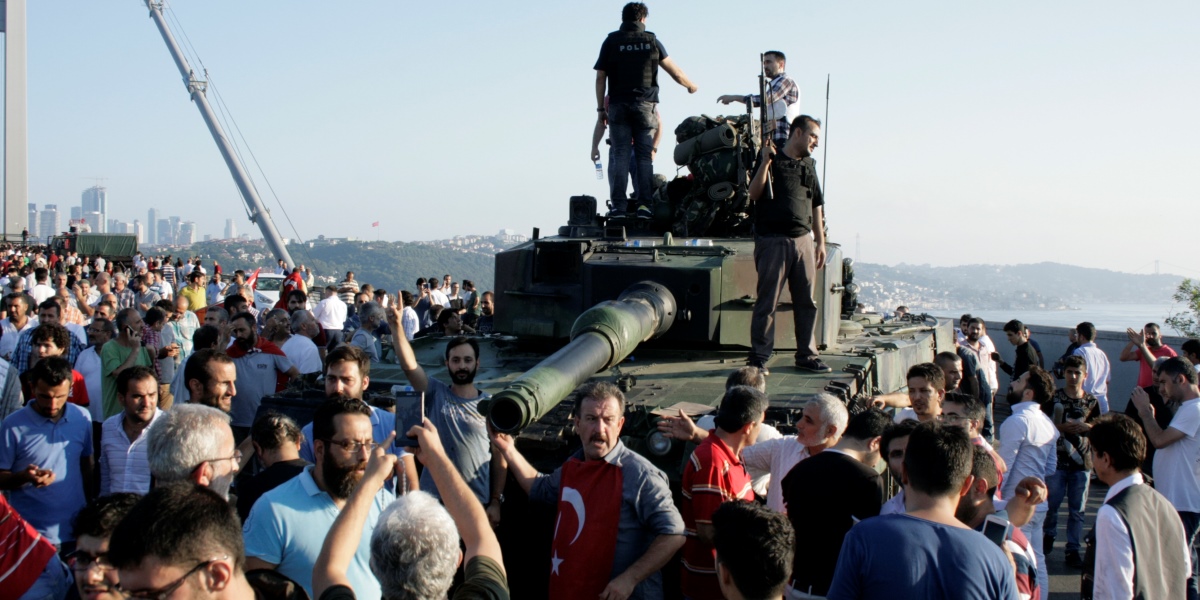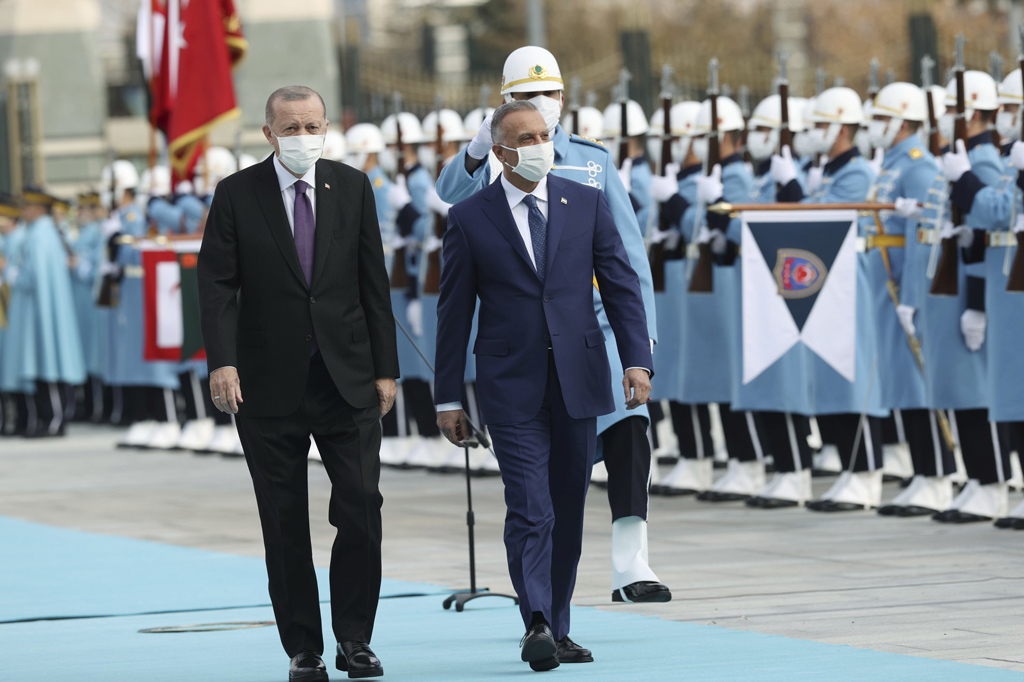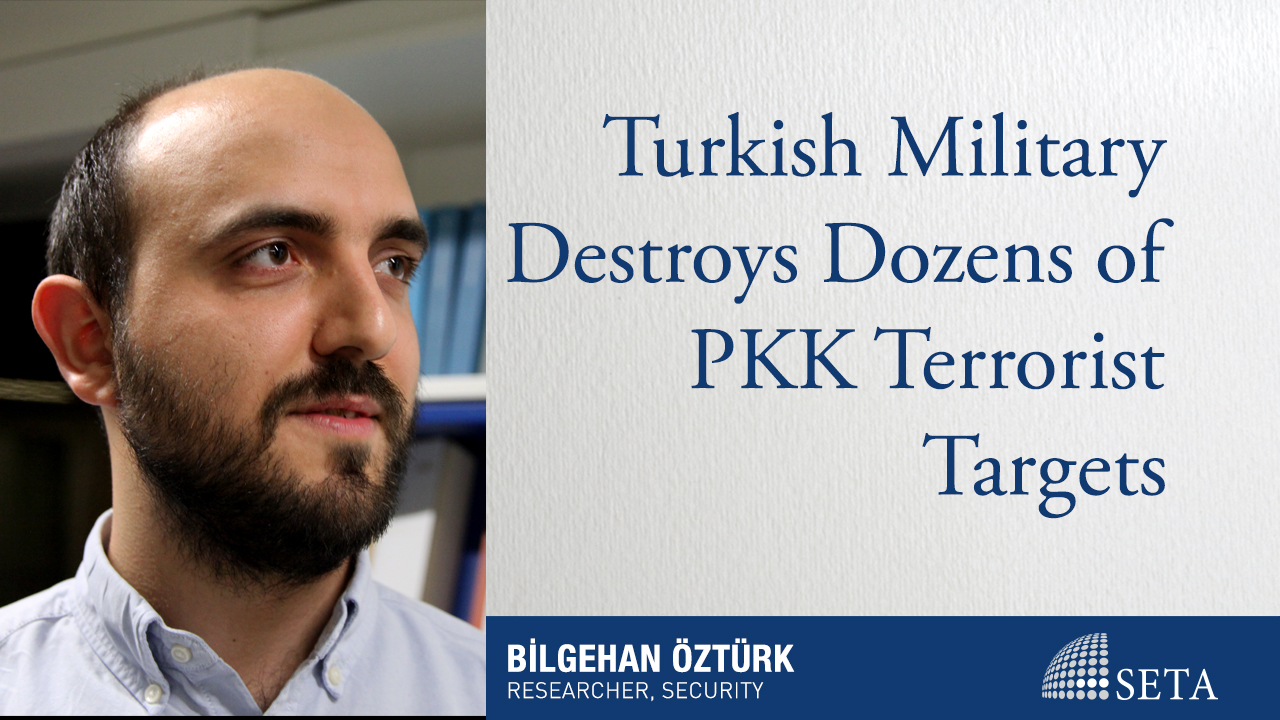
Gülenist Coup Failed, Democracy Won
The Gülenist soldiers who attempted this coup fired on civilians and the state's security forces. In the clashes that occurred, dozens of innocent people lost their lives alongside those who attempted the coup
Share
Last night, Turkey experienced one of the biggest crises in the history of its democracy. The Gülenist junta within the Turkish Armed Forces (TAF) attempted to plunge a dagger into the heart of Turkey's democracy by initiating an armed coup in front of the whole world. The people prevented this attempted coup with great bravery and decisiveness by going out into the streets, filling up public squares, walking on tanks, and by trying to gather up the guns from the hands of armed soldiers. This decisive attitude on the part of the people allowed for the security forces under the command of the legitimate civil authority to move against the forces behind the coup. Unfortunately, dozens of security personnel and civilians lost their lives in the clashes that broke out. But at the end of the day, the junta was brought down and once again, democracy won.
From the very moment that rumors of "soldiers attempting a coup" began to be spread on social media and photos of the tanks placed at the entrance of the two bridges in Istanbul began to be shared, clear messages came from administration authorities. Prime Minister Binali Yıldırım and Minister of Justice Bekir Bozdağ immediately went on TV to give the message that a marginal group within the army had attempted this armed rebellion and that the state and the administration were both doing their duties; they called on the people to protect democracy.
Afterwards, President Recep Tayyip Erdoğan joined the live broadcast on CNN Turk via videophone. He invited people on to the streets. The people went out and blocked the Fetullah Gülen- commanded junta coup attempt.
The Gülenist junta members that were grouped in the Turkish Armed Forces - especially in the Air Force - attacked the Turkish Grand National Assembly, the Turkish General Staff, the Secretariat of the National Intelligence Organization, Police Special Operations Center, and the Police Academy in Ankara with the state's guns and bombs in order to take over the legitimate, democratic administration. The junta members who closed down the Bosporus and Fatih Sultan Mehmet Bridges in Istanbul also captured Ataturk airport and cancelled flights. By raiding the official state TV station TRT, they had a "coup memorandum" reminiscent of the Sept. 12, 1980 coup read on live TV. They attempted to seize the Justice and Development Party's (AK Party) provincial centers.
Turkey's political history is one that has gone through many interruptions due to myriad coups. The years 1960, 1971, 1980, 1998 and 2007 are ones where we have been subjected to military interventions. It was in 2007 that Turkey saw for the first time that civilian politicians could frustrate a military intervention and repel the army. In this sense, the people and politicians who showed the will to obstruct this attempted coup went out into the streets with this awareness. But this time a first was experienced. The Gülenist soldiers who attempted this coup fired on civilians and the state's security forces. In the clashes that occurred, dozens of innocent people lost their lives alongside those who attempted the coup.
So what was it that moved the Gülenist junta? Towards the end of the 2013, the Gülenists that had been grouped in the legal system and attempted to overthrow the period's elected administration through a "judiciary coup" but were unsuccessful. From that day on, a serious antipathy was formed towards this group known as the "parallel state formation" among the public. President Erdoğan and the AK Party administrations exerted serious efforts in order to cleanse this "parallel state formation" from the state. Important steps were taken in order to cut off the financial resources and propaganda tools of this formation. Among the public, there was an expectation that it would eventually be the turn of the Gülenists, meaning the parallel state formation, within the army. And this was a factor accepted not just by the part of society that voted for the AK Party but for a much greater part of it. And this group from within the military acted prior to the "discharge" that was to be done in two weeks' time. Yes, with the attempted coup yesterday, Fetullah Gülen's extensions in the military played their last card. That this attempted coup was unsuccessful points first of all to the maturity level of democracy in Turkey. Undoubtedly this is about Turkey's people giving importance to democratic administration, the country's stability, as well as domestic peace and quiet and showing this by going out into the streets in order to protect them when the time comes. Another important part of this chain is undoubtedly the presence of a strong leader who is able to counter a coup and who can take risks. To be more clear, it is Recep Tayyip Erdoğan's brave leadership. Turkish democracy is on its feet. This is the point that the Western world needs to see and understand. Turkey is no longer the old Turkey. There is a Turkey whose institutions have settled, whose political culture has matured, and wherein live a people who take care of its welfare, stability, and peace.
[Daily Sabah, July 17, 2016]
Tags »
Related Articles







